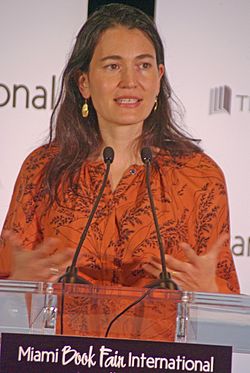Nicole Krauss Quote
During the Age of Glass, everyone believed some part of him or her to be extremely fragile. For some it was a hand, for others a femur, yet others believed it was their noses that were made of glass. The Age of Glass followed the Stone Age as an evolutionary corrective, introducing into human relations a new sense of fragility that fostered compassion. This period lasted a relatively short time in the history of love-about a century-until a doctor named Ignacio da Silva hit on the treatment of inviting people to recline on a couch and giving them a bracing smack on the body part in question, proving to them the truth. The anatomical illusion that had seemed so real slowly disappeared and-like so much we no longer need but can't give up-became vestigial. But from time to time, for reasons that can't always be understood, it surfaces again, suggesting that the Age of Glass, like the Age of Silence, never entirely ended.
During the Age of Glass, everyone believed some part of him or her to be extremely fragile. For some it was a hand, for others a femur, yet others believed it was their noses that were made of glass. The Age of Glass followed the Stone Age as an evolutionary corrective, introducing into human relations a new sense of fragility that fostered compassion. This period lasted a relatively short time in the history of love-about a century-until a doctor named Ignacio da Silva hit on the treatment of inviting people to recline on a couch and giving them a bracing smack on the body part in question, proving to them the truth. The anatomical illusion that had seemed so real slowly disappeared and-like so much we no longer need but can't give up-became vestigial. But from time to time, for reasons that can't always be understood, it surfaces again, suggesting that the Age of Glass, like the Age of Silence, never entirely ended.
Related Quotes
About Nicole Krauss
